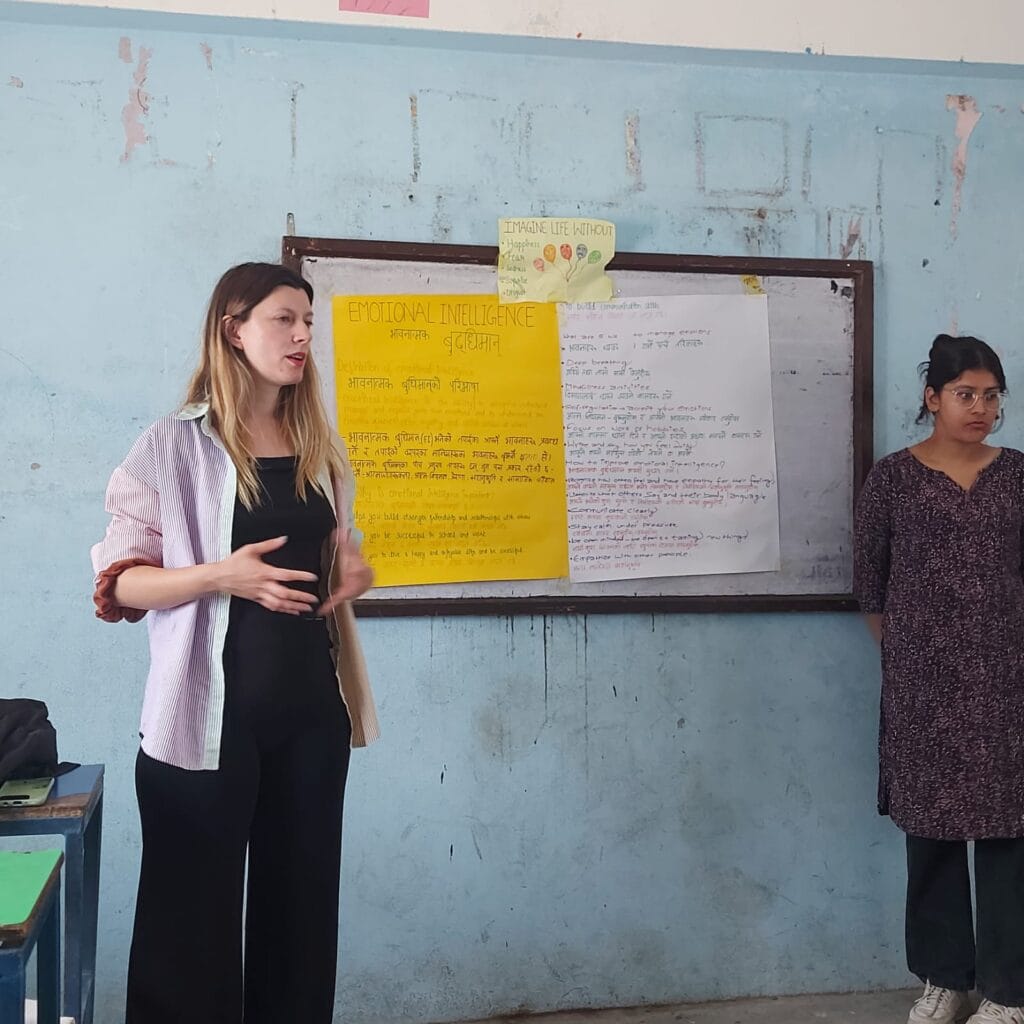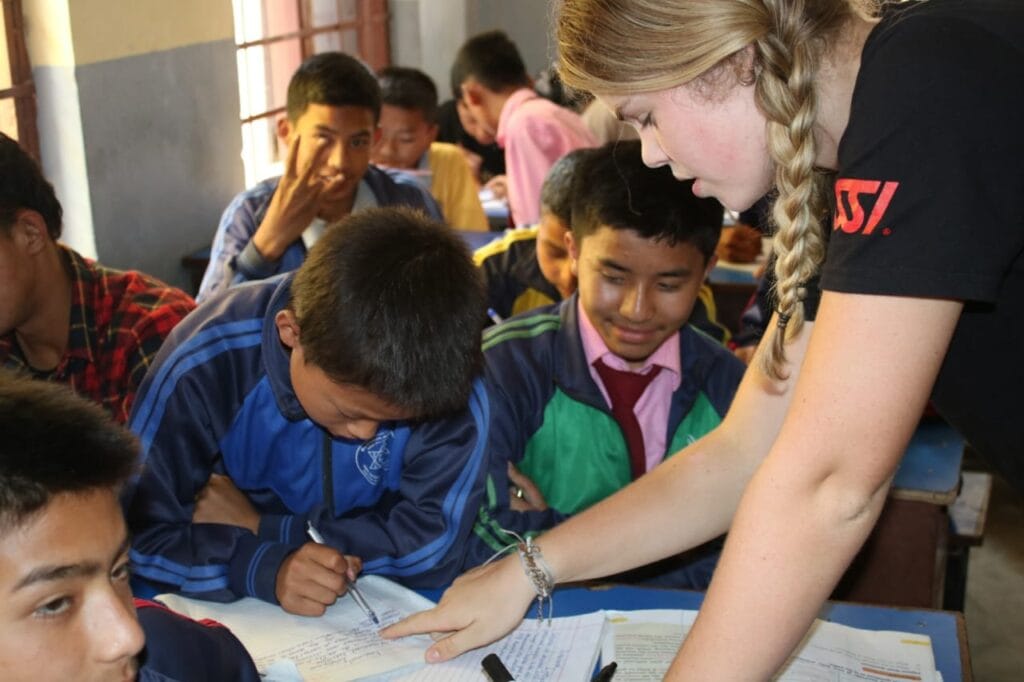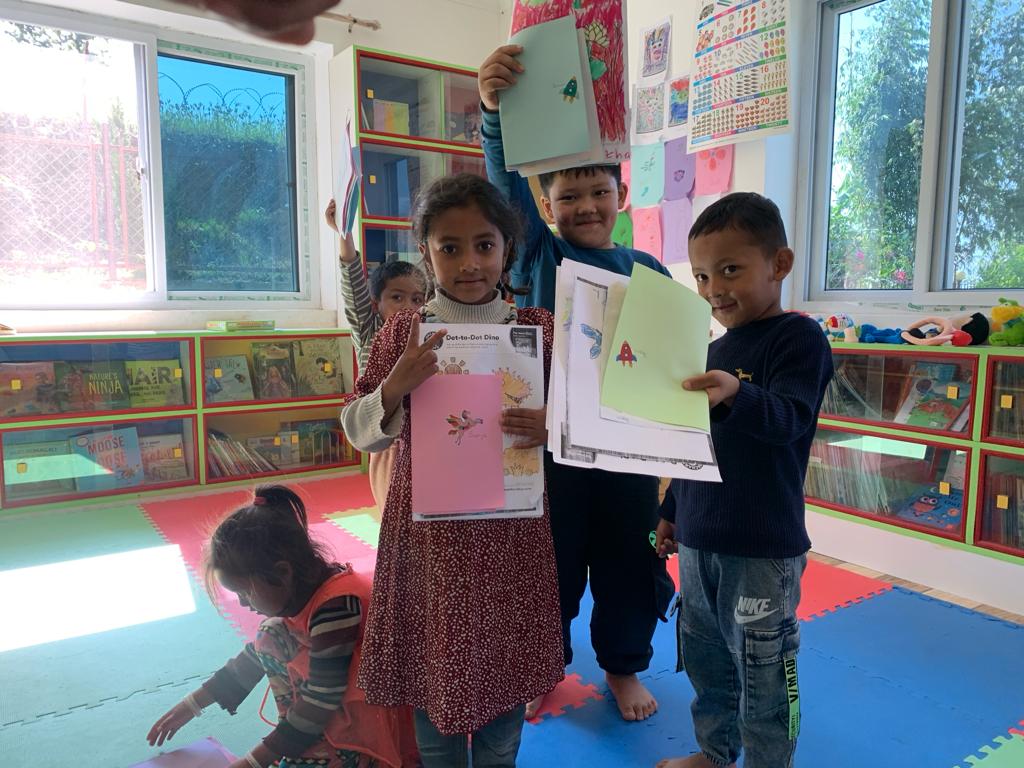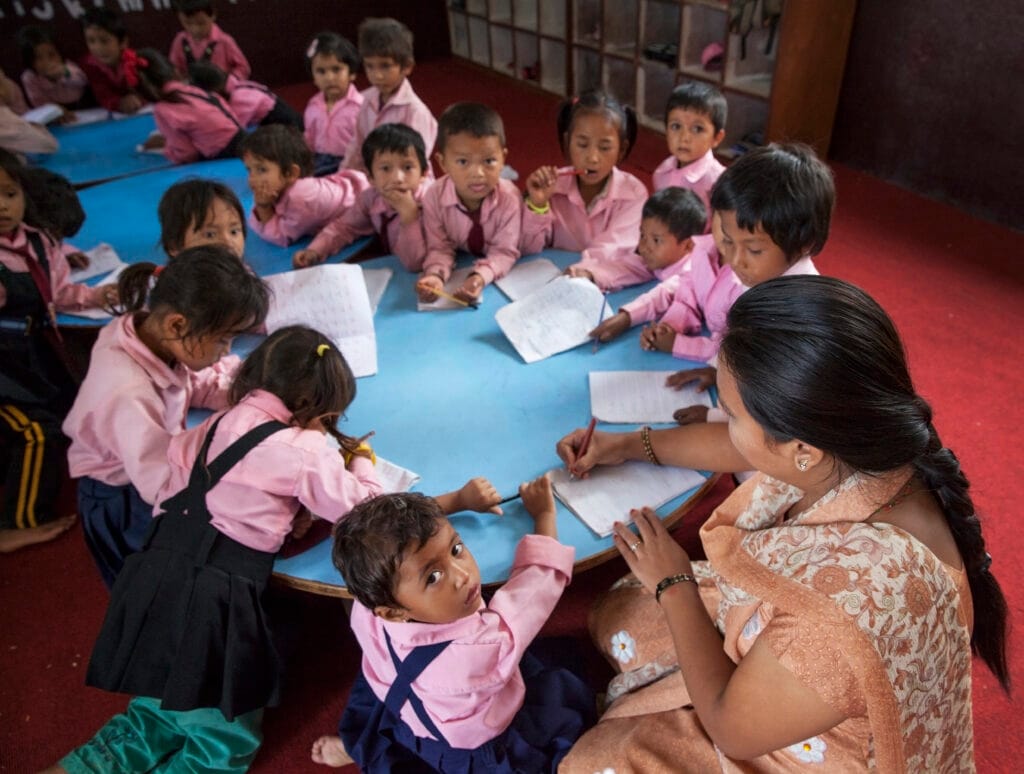Empower young minds with essential skills for a brighter future!
Project Description
Introduction
Life skills are essential for children to navigate their personal, social, and professional lives. However, many children in Nepal lack access to structured life skills education. Volunteering for Children’s Life Skills Teaching allows international volunteers to work directly with children, helping them develop crucial abilities such as communication, decision-making, financial literacy, and emotional well-being.
Background
Nepal’s education system often focuses on academic knowledge, with limited emphasis on life skills development. According to UNICEF, over 60% of Nepali children lack access to structured life skills programs, impacting their future opportunities. Our program fills this gap by introducing Volunteer for Life Skills Education Children programs that empower youth with critical thinking, leadership, and self-confidence.
Key Objectives
- Teach critical thinking, problem-solving, and leadership skills to children.
- Improve communication, teamwork, and self-awareness among students.
- Encourage financial literacy, digital skills, and emotional intelligence.
- Foster creativity, resilience, and adaptability to prepare children for the future.
Why Volunteer for This Project?
The Need for Life Skills Education in Nepal
Nepal has one of South Asia’s highest youth unemployment rates, partly due to a lack of essential skills beyond academics. According to UNESCO, only 35% of students feel confident applying life skills daily. Becoming a Children’s Life Skills Volunteer, you help bridge this gap.
Global Relevance
Our project aligns with UN Sustainable Development Goal 4: Quality Education, which promotes holistic learning. Youth Life Skills Volunteer Programs like ours ensure children receive practical skills to thrive in an ever-changing world.
Local Voices
“The children are eager to learn, and their enthusiasm is contagious! Teaching them life skills is one of the most fulfilling experiences of my life.” – Emma, past volunteer.
Volunteer Roles and Responsibilities
10 Core Tasks for Volunteers
- Teach problem-solving and decision-making through interactive games.
- Conduct leadership and teamwork activities to boost confidence.
- Help children develop financial literacy through fun exercises.
- Facilitate communication workshops to improve public speaking.
- Organize emotional well-being and stress management sessions.
- Teach digital literacy and online safety for responsible internet use.
- Support children in career guidance and future planning.
- Encourage creative thinking through storytelling and arts.
- Organize community events to showcase students’ progress.
- Mentor children and provide one-on-one support.
Daily Schedule Sample
- 08:00 AM – 09:00 AM: Breakfast at the volunteer house.
- 09:30 AM – 12:00 PM: Teaching life skills in schools or community centers.
- 12:00 PM – 01:00 PM: Lunch and relaxation.
- 01:30 PM – 03:30 PM: Interactive workshops and group activities.
- 04:00 PM – 06:00 PM: Free time or cultural immersion activities.
- 07:00 PM – 08:00 PM: Dinner and reflection.
Skills and Requirements
Required Skills
- Passion for teaching and child development.
- Willingness to adapt to new cultures and environments.
- Patience and enthusiasm to work with children.
Eligibility
- Open to participants aged 18+ (16+ with parental consent).
- No prior teaching experience is required, but it’s a plus!
Preferred Skills
- Background in education, psychology, child development, or social work.
- Experience in mentoring, coaching, or leadership training.
Cultural Experience
Cultural Immersion
As a Volunteer for Child Empowerment, you will engage in Nepal’s rich culture:
- Participate in festivals like Dashain and Tihar.
- Learn basic Nepali phrases to communicate with locals.
- Experience traditional Nepali meals and homestay hospitality.
Logistics and Support
Accommodation & Meals
- Shared volunteer house or homestay with a local family.
- Traditional Nepali meals are provided three times a day.
Transportation & Safety
- Airport pickup and local transportation are arranged.
- 24/7 in-country support and emergency assistance are available.
Program Fees & Inclusions
Visit: VIN Program Fees
Impact and Outcomes
Volunteer Impact
- Gain hands-on teaching experience and leadership skills.
- Build strong connections with local children and teachers.
- Enhance your cross-cultural communication abilities.
Community Impact
- Over 2,000 children have benefited from our programs.
- Improved confidence, creativity, and decision-making among students.
- Increased awareness of financial literacy and digital skills.
Success Stories & Testimonials
“I volunteered for three months and saw incredible transformations in the children. One student, Anisha, went from being shy to leading a debate competition!” – James, UK.
Application Process
Ready to become a Children’s Life Skills Volunteer? Follow these steps:
- Apply Online: Apply Now
- Submit CV and References.
- Receive Confirmation & Pre-Departure Guide.
- Pay Program Fee & Finalize Travel Plans.
- Arrive in Nepal & Start Teaching!
Frequently Asked Questions (FAQs)
What qualifications do I need to become a Children’s Life Skills Volunteer in Nepal?
You don’t need formal teaching experience to join a Volunteer for Child Life Skills Development program. A passion for working with children, patience, and adaptability are key. Some programs prefer volunteers with education, social work, or psychology backgrounds.
What will I do as a Volunteer for the Life Skills Education Children program?
As a Community Volunteer Life Skills for Children, you’ll teach essential soft skills like communication, teamwork, and problem-solving through interactive sessions, storytelling, role-playing, and games. You’ll also mentor children to boost confidence and leadership.
How long do Children’s Life Skills Volunteer Opportunities last?
Programs vary from 2 weeks to 5 months. The longer you stay, the more significant the impact you can make in a Youth Life Skills Volunteer Program.
What kind of support will I receive as a Child Development Volunteer?
Volunteers get full support, including pre-departure training, in-country orientation, lesson materials, and continuous guidance from project coordinators.
Where will I stay during my Volunteer for Kids Life Skills Training program?
You’ll live with a host family or in a volunteer house, offering a deep cultural immersion experience. Meals, basic amenities, and safety measures are provided.
Are there program fees for a Nonprofit Volunteer Child Education project?
Yes, fees cover accommodation, meals, transport, and on-site support. Your contribution ensures program sustainability and benefits local children.
How does Volunteer Teaching Life Skills for Kids help the community?
Equipping children with essential life skills empowers them to make better decisions, develop confidence, and prepare for brighter futures—creating long-term change in their communities.
Join Us Today to Make a Difference!
Start your journey as a Volunteer for Kids Life Skills Training today! Apply now and empower the future of Nepal’s youth.
📩 Contact us at support@vin.org.np
🌏 Visit: VIN Website
Gallery





